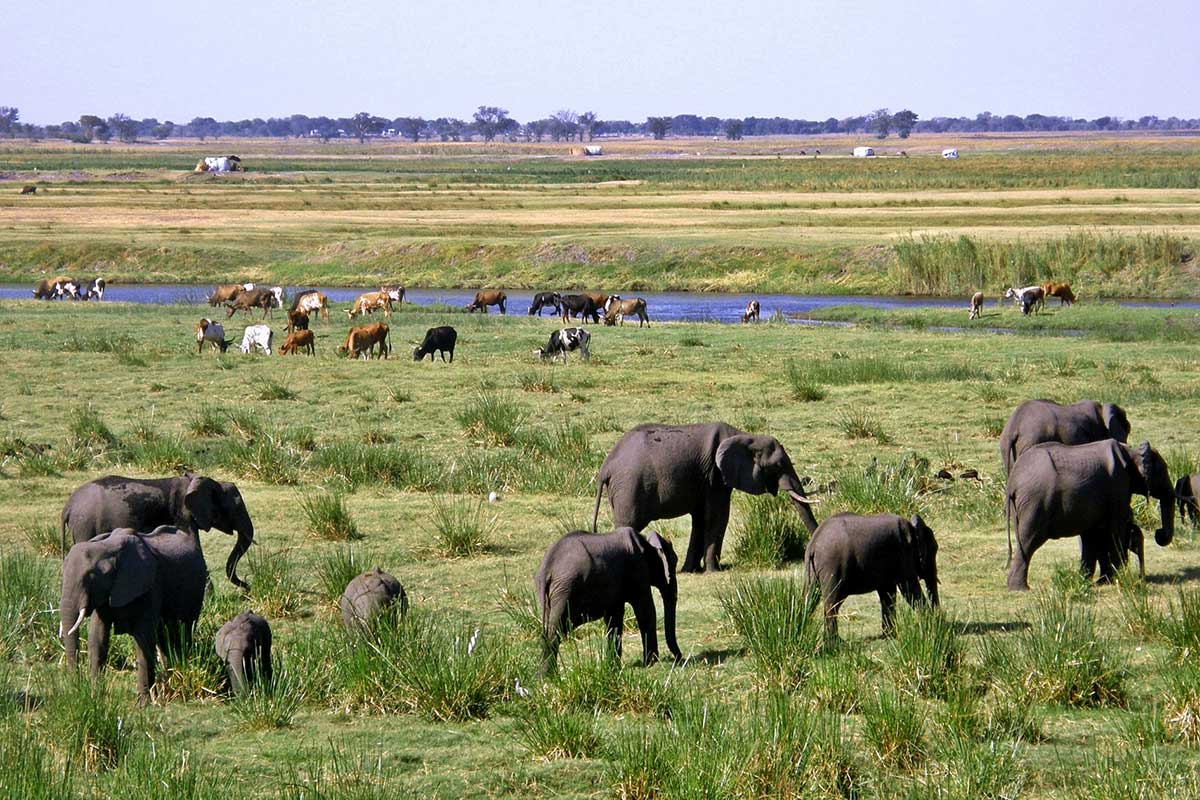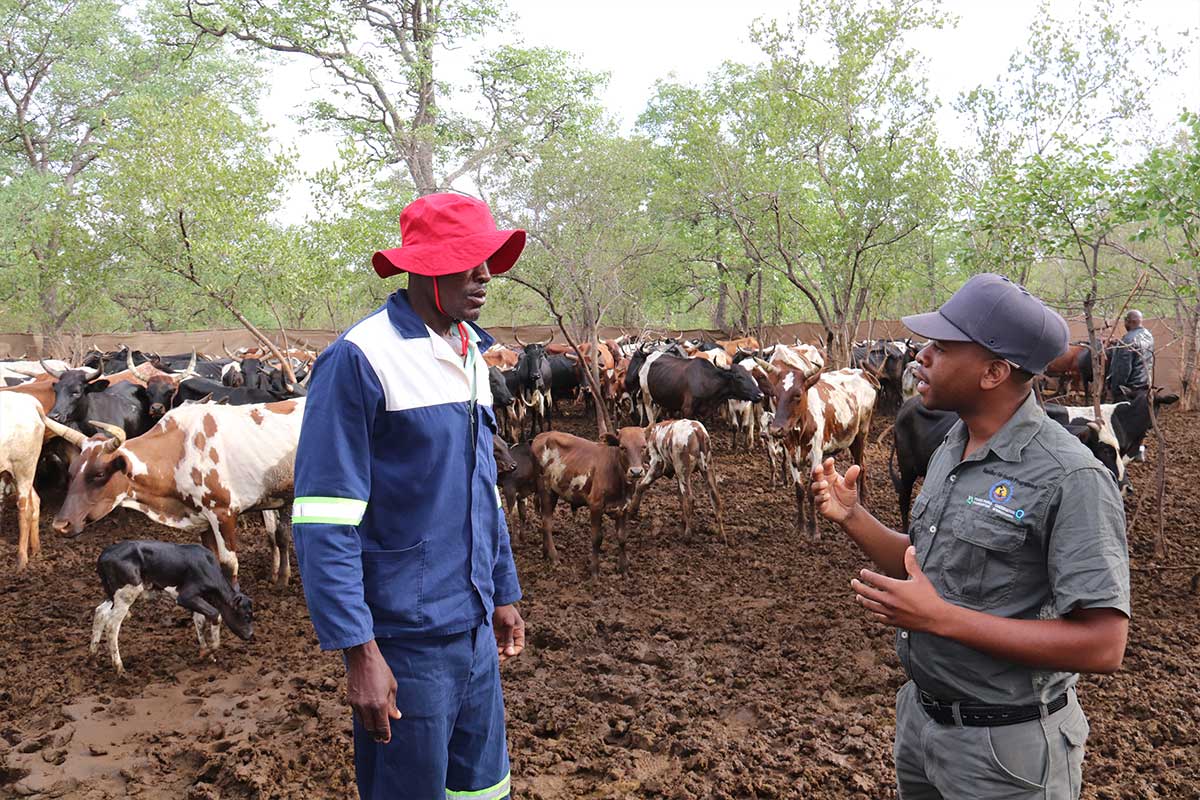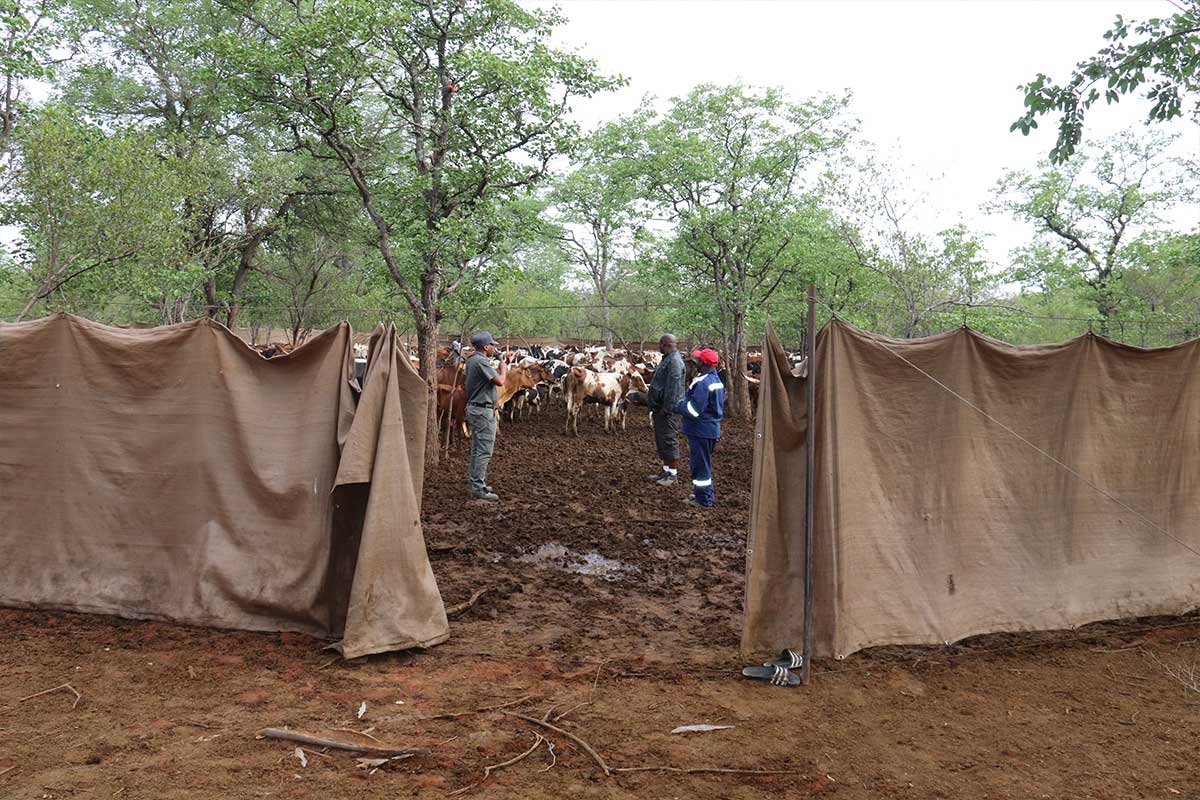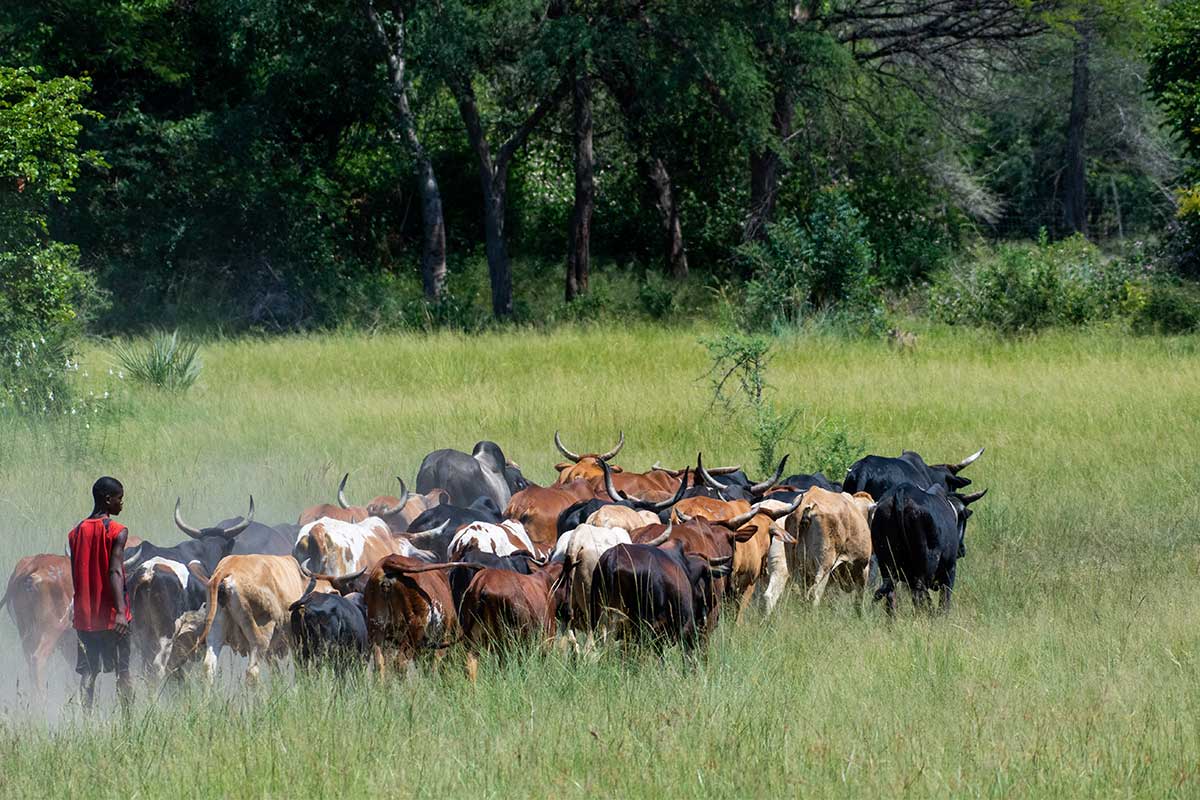Herding 4 Health in Limpopo National Park
Regeneration of rangelands to improve soil and vegetation health is a climate-change mitigation tool that is rapidly gaining credibility and acceptance worldwide. Rangelands also provide critical ecosystem services, such as water and habitat for biodiversity, and maintain livelihoods and cultural value related to livestock and wildlife. While many view livestock as a threat to conservation and especially rangeland health, it is in fact through the correct management of livestock and unlocking their value in underserved communities that significant benefits for effective land use and conservation development can be achieved.
Herding 4 Health is a wildlife-friendly livestock management program. A partnership between Conservation International, Meat Naturally, and Peace Parks, it aims to reduce human wildlife conflict caused by competition for grazing and water resources, and promote the coexistence between communities and the protected area. It is centered around an innovative, holistic, community-driven model that links skills development with community participation, sustainable rangeland management, disease risk and food safety controls, and community-led rural development principles. It further promotes an enabling environment for sustainability mechanisms, such as the development of livestock market access and carbon credit exchange as revenue incentives for compliance with stewardship agreements that sustain ongoing compliance by local farmers.
An essential part of this project is the training of Ecorangers (skilled herders) who practice Planned Grazing and Combined Herding (PGCH) of livestock. This technique uses controlled animal impact to benefit ecological regeneration, while also offering adequate recovery time for the community rangeland. The Ecorangers are also trained to mitigate contact with wildlife in order to reduce conflict and disease transmission. The recruitment and employment of Ecorangers targets the youth as well as women.
This program is currently being successfully implemented in Limpopo National Park with 36 community Ecorangers trained and employed to oversee the more than 11,000 head of cattle participating in planned grazing within an area of approximately 150,000 ha. As part of this program, 14 predator proof mobile bomas have been deployed to reduce killing of livestock by predators, and serve as important tools for rangeland restoration (summer) and crop field fertilization (winter). A strong focus is also placed on establishing sustainable governance by capacitating community members to serve in special Grazing Area Committees.
Your contribution will support the Herding 4 Health Ecorangers as it will be put towards covering the cost of their training, uniforms, water purification kits, tents, and the specialized kits that are put together to help them deter wildlife at the bomas (lights, solar charges, and vuvuzelas).








